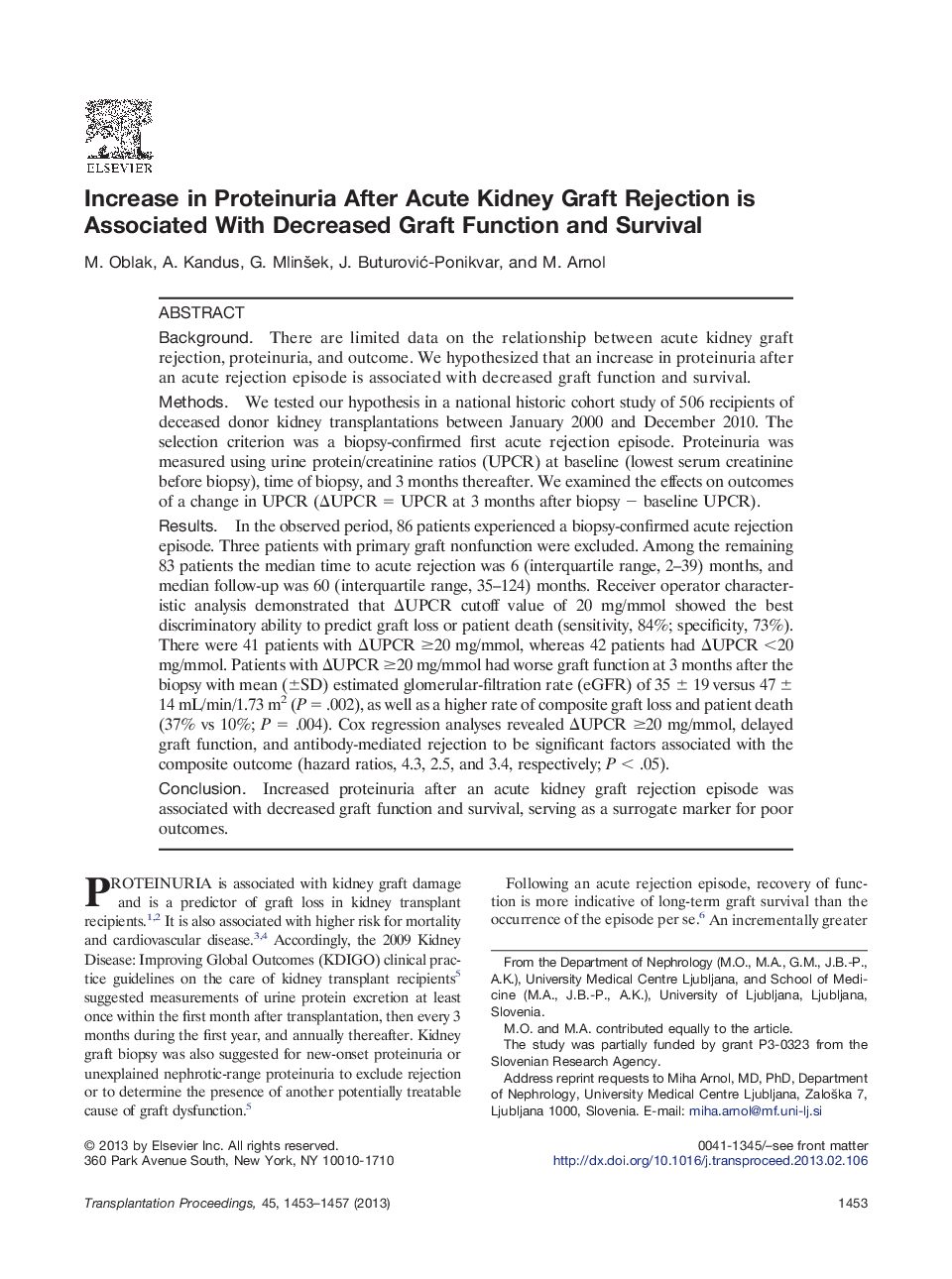| Article ID | Journal | Published Year | Pages | File Type |
|---|---|---|---|---|
| 4257295 | Transplantation Proceedings | 2013 | 5 Pages |
BackgroundThere are limited data on the relationship between acute kidney graft rejection, proteinuria, and outcome. We hypothesized that an increase in proteinuria after an acute rejection episode is associated with decreased graft function and survival.MethodsWe tested our hypothesis in a national historic cohort study of 506 recipients of deceased donor kidney transplantations between January 2000 and December 2010. The selection criterion was a biopsy-confirmed first acute rejection episode. Proteinuria was measured using urine protein/creatinine ratios (UPCR) at baseline (lowest serum creatinine before biopsy), time of biopsy, and 3 months thereafter. We examined the effects on outcomes of a change in UPCR (ΔUPCR = UPCR at 3 months after biopsy − baseline UPCR).ResultsIn the observed period, 86 patients experienced a biopsy-confirmed acute rejection episode. Three patients with primary graft nonfunction were excluded. Among the remaining 83 patients the median time to acute rejection was 6 (interquartile range, 2–39) months, and median follow-up was 60 (interquartile range, 35–124) months. Receiver operator characteristic analysis demonstrated that ΔUPCR cutoff value of 20 mg/mmol showed the best discriminatory ability to predict graft loss or patient death (sensitivity, 84%; specificity, 73%). There were 41 patients with ΔUPCR ≥20 mg/mmol, whereas 42 patients had ΔUPCR <20 mg/mmol. Patients with ΔUPCR ≥20 mg/mmol had worse graft function at 3 months after the biopsy with mean (±SD) estimated glomerular-filtration rate (eGFR) of 35 ± 19 versus 47 ± 14 mL/min/1.73 m2 (P = .002), as well as a higher rate of composite graft loss and patient death (37% vs 10%; P = .004). Cox regression analyses revealed ΔUPCR ≥20 mg/mmol, delayed graft function, and antibody-mediated rejection to be significant factors associated with the composite outcome (hazard ratios, 4.3, 2.5, and 3.4, respectively; P < .05).ConclusionIncreased proteinuria after an acute kidney graft rejection episode was associated with decreased graft function and survival, serving as a surrogate marker for poor outcomes.
